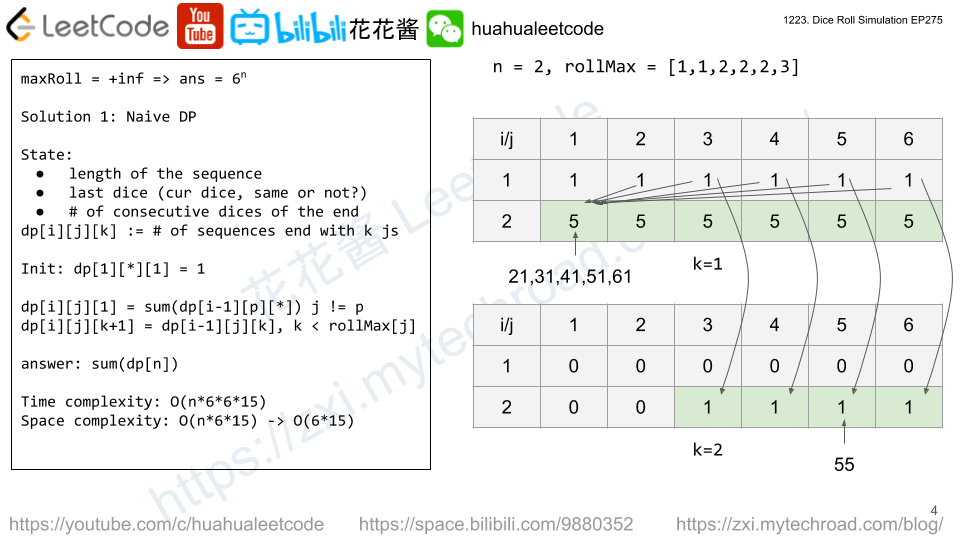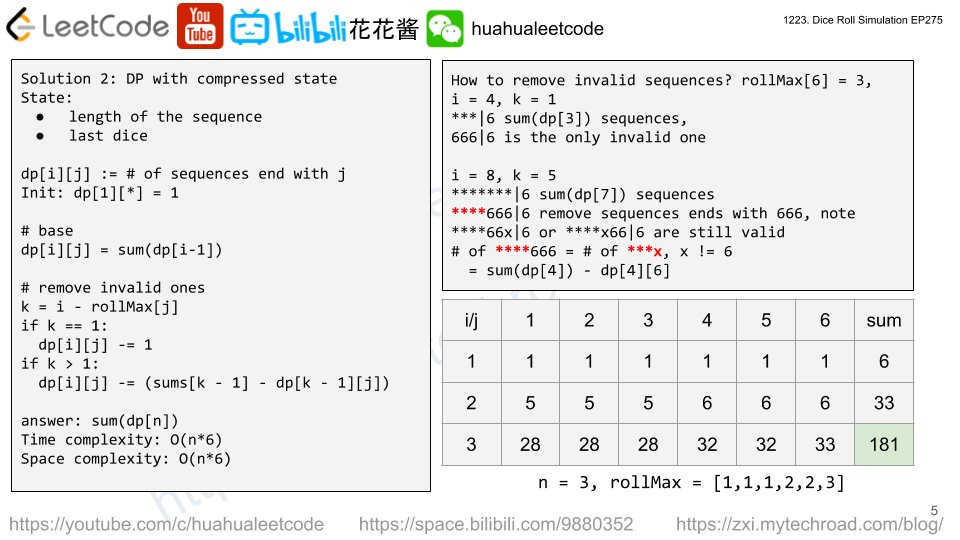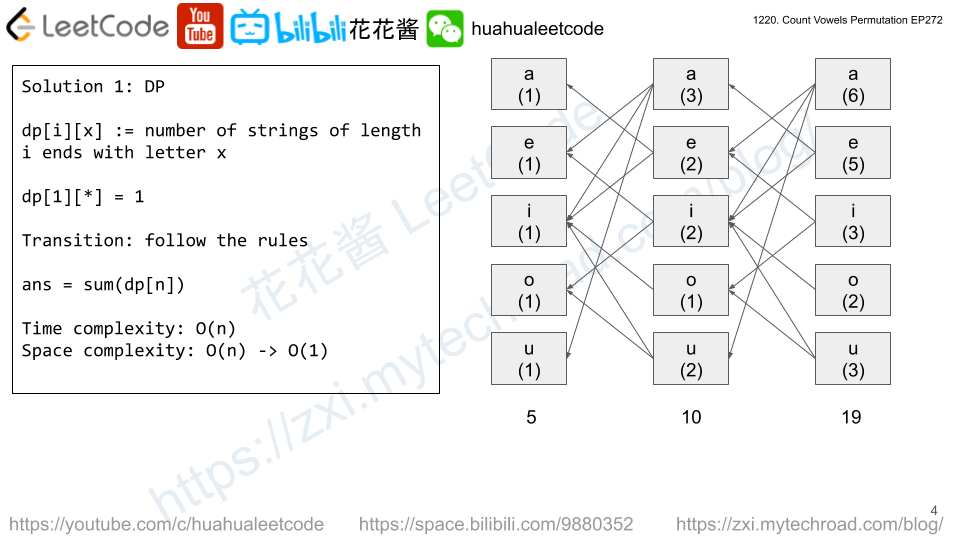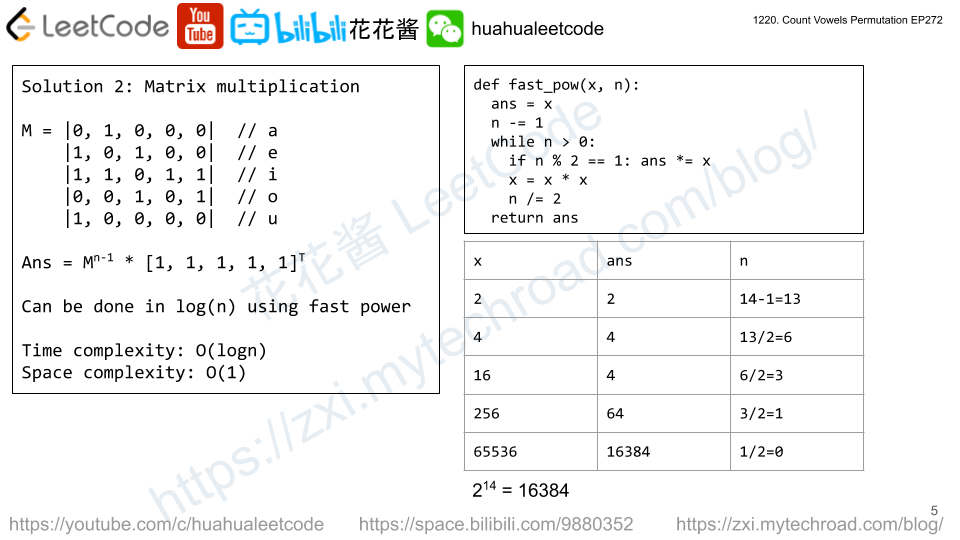We have n jobs, where every job is scheduled to be done from startTime[i] to endTime[i], obtaining a profit of profit[i].
You’re given the startTime , endTime and profit arrays, you need to output the maximum profit you can take such that there are no 2 jobs in the subset with overlapping time range.
If you choose a job that ends at time X you will be able to start another job that starts at time X.
Example 1:
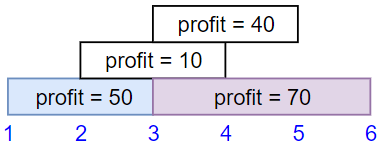
Input: startTime = [1,2,3,3], endTime = [3,4,5,6], profit = [50,10,40,70] Output: 120 Explanation: The subset chosen is the first and fourth job. Time range [1-3]+[3-6] , we get profit of 120 = 50 + 70.
Example 2:

Input: startTime = [1,2,3,4,6], endTime = [3,5,10,6,9], profit = [20,20,100,70,60] Output: 150 Explanation: The subset chosen is the first, fourth and fifth job. Profit obtained 150 = 20 + 70 + 60.
Example 3:

Input: startTime = [1,1,1], endTime = [2,3,4], profit = [5,6,4] Output: 6
Constraints:
1 <= startTime.length == endTime.length == profit.length <= 5 * 10^41 <= startTime[i] < endTime[i] <= 10^91 <= profit[i] <= 10^4
Solution: DP + binary search
Sort jobs by ending time.
dp[t] := max profit by end time t.
for a job = (s, e, p)
dp[e] = dp[u] + p, u <= s, and if dp[u] + p > last_element in dp.
Time complexity: O(nlogn)
Space complexity: O(n)
C++
|
1 2 3 4 5 6 7 8 9 10 11 12 13 14 15 16 17 18 19 20 21 |
// Author: Huahua class Solution { public: int jobScheduling(vector<int>& startTime, vector<int>& endTime, vector<int>& profit) { const int n = startTime.size(); vector<vector<int>> jobs(n); for (int i = 0; i < n; ++i) jobs[i] = {endTime[i], startTime[i], profit[i]}; sort(begin(jobs), end(jobs)); int ans = 0; map<int, int> m{{0, 0}}; // {end_time -> max_profit} for (const auto& job : jobs) { int p = prev(m.upper_bound(job[1]))->second + job[2]; if (p > rbegin(m)->second) { m[job[0]] = p; } } return rbegin(m)->second; } }; |
